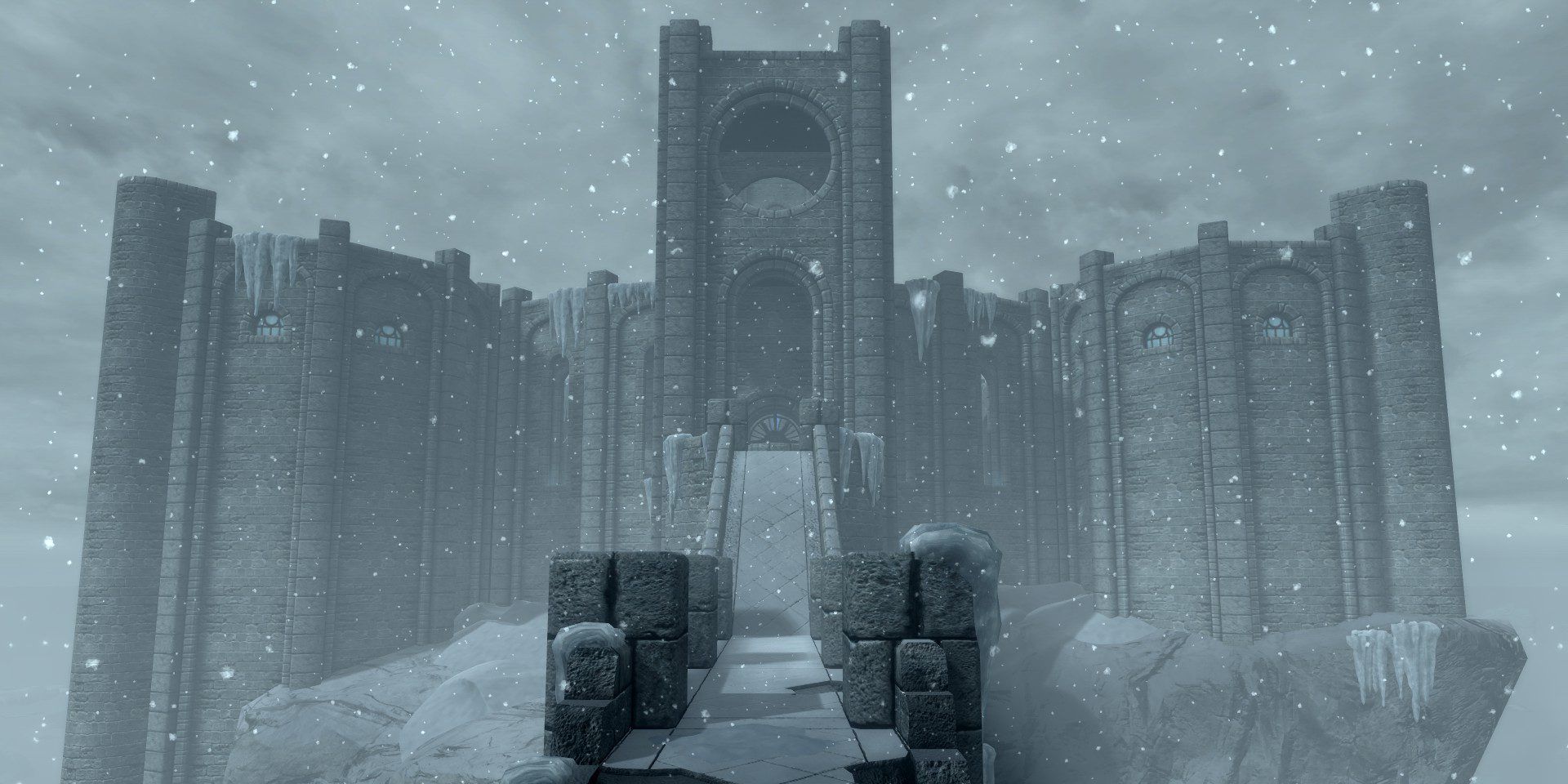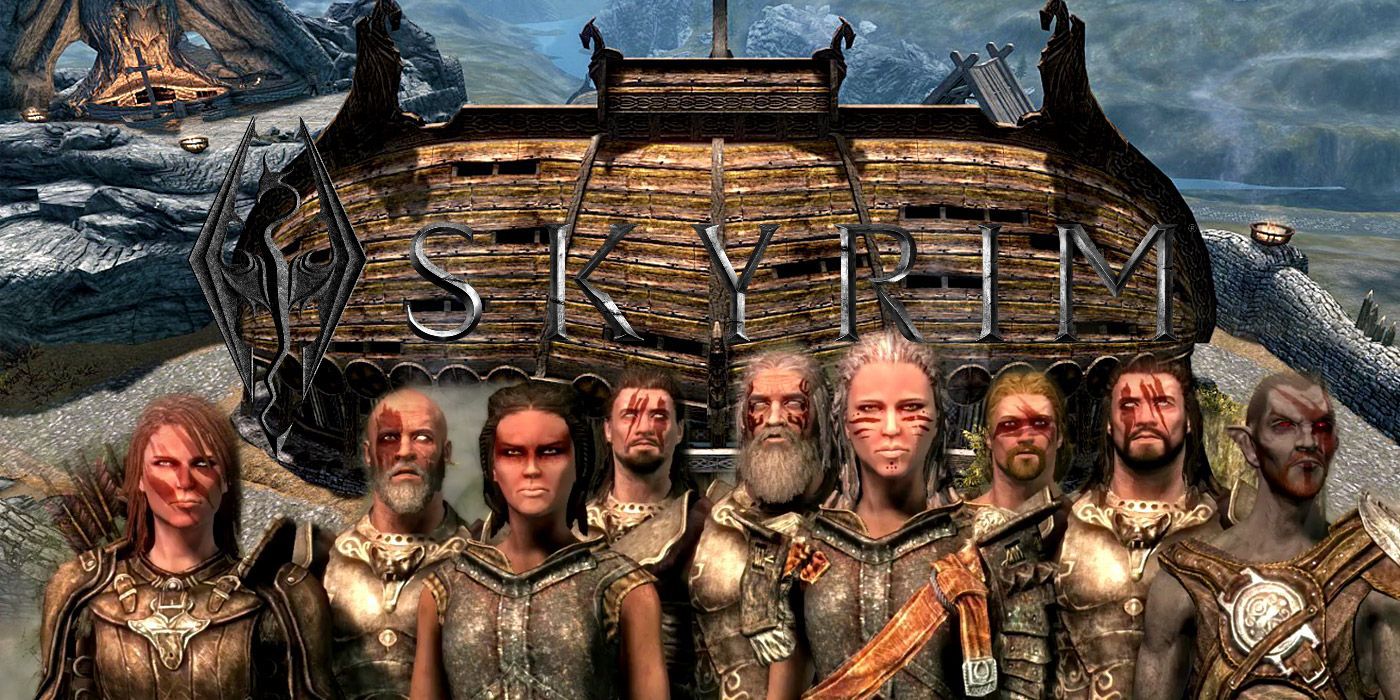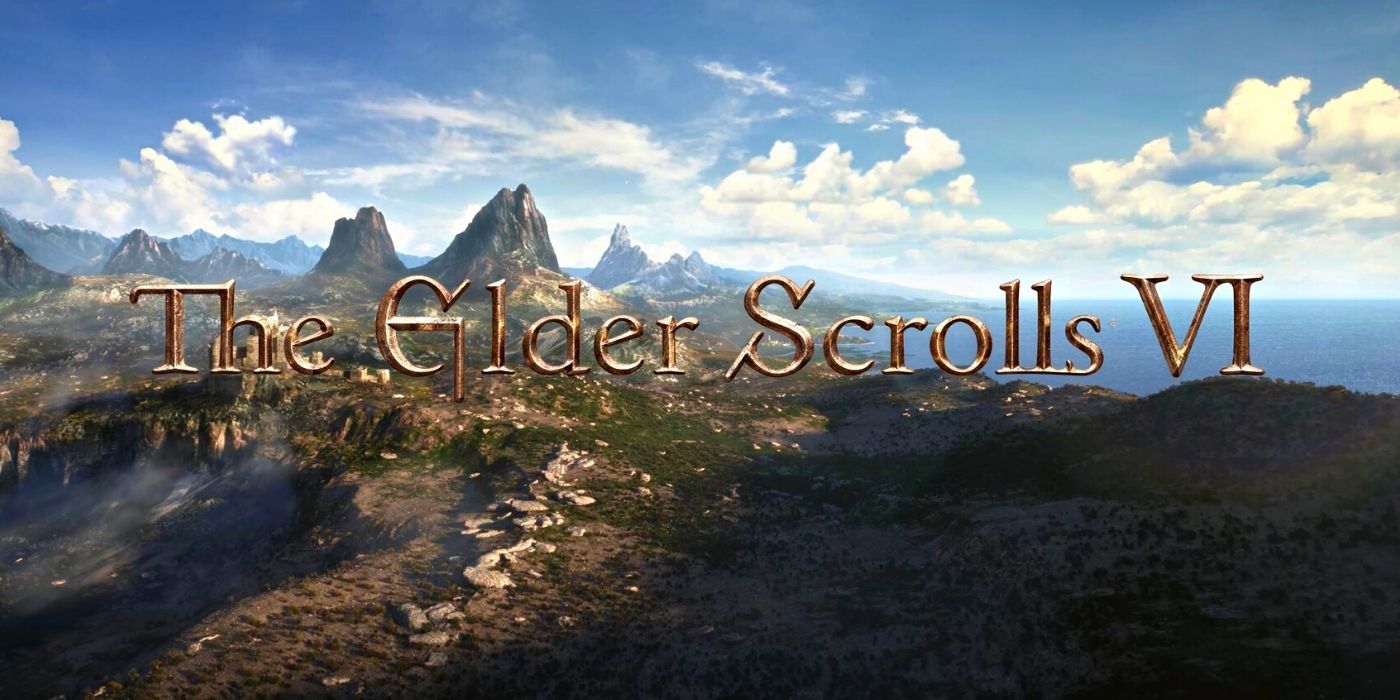In the world of The Elder Scrolls, there are a great many Guilds, few of which appear in Skyrim. In addition to the biggest two, the Fighters and Mages Guilds, there are a plethora of minor ones that have never appeared in the games, but hopefully some will make an appearance in future titles such as Elder Scrolls 6. Their likelihood is questionable, but they have potential if done right.
In Skyrim, there are four main NPC factions that players can join; the Companions, the College of Winterhold, the Dark Brotherhood, and the Thieves Guild. Each one has their own questline and cast of characters to interact with. There’s also the Bard’s College, but it’s a very minor aspect of the game, and its quests are easy to miss in Skyrim. In other Elder Scrolls games such as Oblivion, the factions are much more organized, and have multiple branches scattered throughout the map. They’re fun ways to find trainers, good gear, and followers, and can help with roleplay and immersion by letting players pick which factions their character would join, and that match their playstyle.
Most of the minor Guilds in the Elder Scrolls series teach trades, and have little to do with combat, so it makes sense that they’ve never been shown. The Guilds Act of 2E 321, signed by Potentate Versidue-Shaie, officially established the Tinkers, Cobblers, Prostitutes, Scribes, Architects, Brewers, Vintners, Weavers, Ratcatchers, Furriers, Cooks, Astrologers, Healers, Tailors, Minstrels, and Barristers Guilds, but not the Fighters and Mages Guilds that some of the Elder Scrolls‘ protagonists can join. The full details and history of the minor Guilds is largely unknown, but they presumably are still active in the fourth Era.
The Mages Guild Is Replaced By The College of Winterhold In Skyrim

In Elder Scrolls, the Mages Guild was founded in the second Era by Vanus Galerion, who in doing so made magic and alchemy available to the general populace instead of just aristocrats or intellectuals. It started in the Summerset Isles, but gradually spread across all of Tamriel. The protagonist of Oblivion, the Champion of Cyrodiil, becomes the Arch-Mage after the evil Mannimarco, King of Worms, attacked the Guild and killed the former Arch-Mage, Hannibal Traven. In the fourth Era, the Guild dissolved as a result of anti-magic sentiment following the Oblivion Crisis, and two groups known as the Synod and the College of Whispers splintered off from it. Players can join the Mages Guild in every game aside from Arena and Skyrim, and each Elder Scrolls game has its own Mages Guild questline that unlocks access to trainers for magic skills and merchants that sell rare spellbooks and materials.
The College of Winterhold in Skyrim is where all the greatest magic users of the region gather to hone their talents. It serves as the equivalent of the Mages Guild in other games, though it doesn’t have as much influence or power. Unlike the Mages Guild, necromancy is not forbidden in the College of Winterhold, though it is somewhat regulated. The College offers similar services and has its own questline, but it’s somewhat lackluster compared to those in other games due to the fact that little magical ability is required. Players can become the Arch-Mage by playing through the questline to the end, much like the other games. There are pros and cons to Skyrim‘s College of Winterhold, and one of the biggest rewards are the immensely powerful ritual spells for each school of magic.
The Fighters Guild Is Replaced By The Companions In Skyrim

The Fighters Guild of Tamriel was established in the year 2E 320 by Versidue-Shaie with the goal of creating an organization dedicated to training mercenaries and – appropriately – fighters to serve the public order without the need for the military. It’s primarily based in Cyrodiil, where it’s run by the Donton family, but has locations across Tamriel. It offers combat training as well as contracts for various jobs such as exterminating wild beasts, security detail, and more. During the Planemeld of Elder Scrolls Online, they were contracted to destroy Molag Bal’s Dark Anchors, and were instrumental in ending his invasion of Tamriel; aside from these events, however, most of the Fighters Guild’s lore hasn’t appeared in Elder Scrolls games. Like the Mages Guild, players in each game aside from Arena and Skyrim can join to gain access to trainers and questlines, and become the Guildmaster in some.
In Skyrim, the Fighters Guild is replaced by the Companions, a group who descend from the original 500 Companions of Ysgramor, who wiped out most of the elves in the province and claimed the region for humans. They’re a valorous group who value honor, and forbid magic. The Companions operate in a similar capacity to the Fighters Guild, and take contracts from the citizens of Skyrim in exchange for gold. Their leader is Kodlak Whitemane, a man deeply respected throughout all the nine Holds. At some point, the elite members known as the Circle took on beast blood, and though it’s not known exactly how Skyrim‘s Companions gave way to werewolf blood, the practice persists in the current era and some current members such as Aela the Huntress and the twins Farkas and Vilkas are lycanthropes. Players can become one themselves, in addition to gaining access to trainers and a rich questline, should they join.
What Other Guilds Could Appear In Elder Scrolls 6

The Mages and Fighters Guild – or a local equivalent – can appear in Elder Scrolls 6 when it releases. If so, they’ll hopefully have more detailed questlines than the Companions and College of Winterhold, as well as ranking systems like the ones other Elder Scrolls games had but Skyrim lacked. The fact that ESO brought this feature back is a heartening sign that it will reappear. The Thieves Guild and the Dark Brotherhood are also just as much a part of the Elder Scrolls series and also feature in Elder Scrolls Online, so there is a good possibility that they will return, as well. However, unless ES6 goes back to pre-Skyrim Tamriel history like ESO did, the canon dissolution of the Mages Guild could mean that it will take on a different form, and players may instead join a group like the College of Whispers.
The miscellaneous Guilds that the Guilds Act created aren’t as likely as the Fighters and Mages Guilds to be included in Elder Scrolls 6. Their focus is on skills that don’t have applications in combat, so they may be left out once again. If they are included, they may end up like Skyrim‘s Bard College, and offer little aside from a short questline and minor perks like a few trainers. This isn’t to say that they can’t be implemented in a larger capacity, however. Bethesda games have increasingly been implementing more complicated crafting features, and Elder Scrolls Online features the Provisioning and Clothing crafting skills, so there’s a chance that Elder Scrolls 6 will have skills like cooking that players can improve by joining a Guild dedicated more to everyday skills than swords or magic. Elder Scrolls 6 is still a long way away, so not much about it can be said for certain, but hopefully, its Guilds improve on Skyrim‘s.





